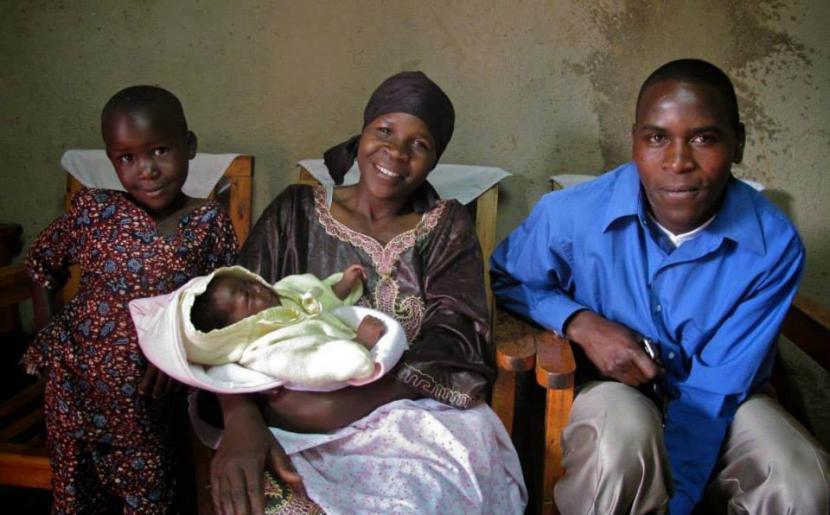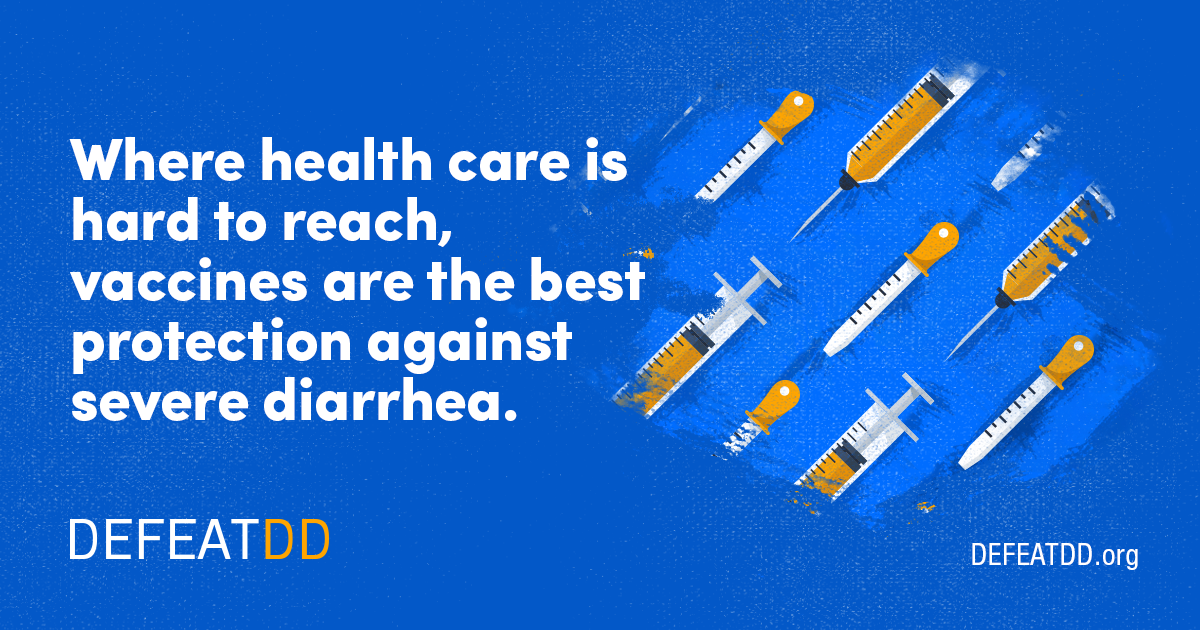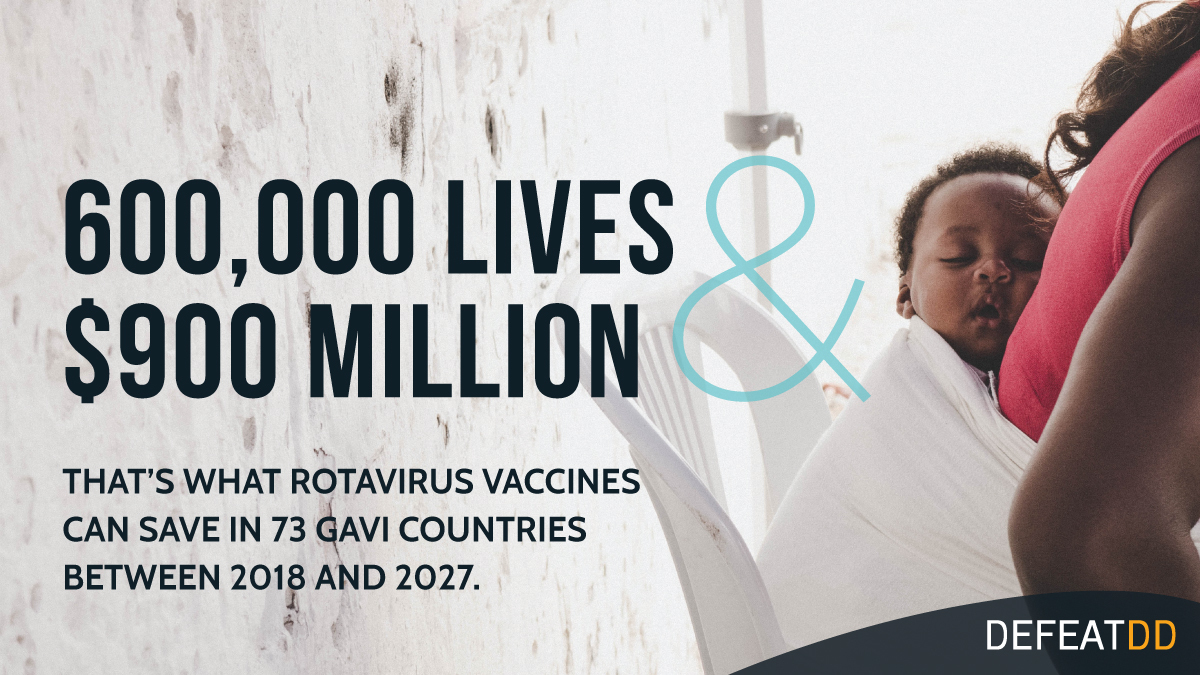
Finding inspiration from rotavirus vaccines as we rally against COVID-19

A happy family awaits their child’s receipt of rotavirus vaccine at Rwanda’s launch in 2012.
In public health, we often say that prevention is better than cure. As the whole world pines for the swift arrival of an effective vaccine against COVID-19, the idea has transitioned from an adage to a painfully felt truth in our collective psyche.
COVID-19 is a moment of reckoning. Citizens of the world’s wealthiest countries now find themselves facing financial strain and precariously stretched health systems that have long been the norm for lower-income communities. These low-income communities are also the ones hardest hit by ongoing emergencies, such as high rates of pneumonia and diarrhea, the leading global killers of children.
As we’ve often said of diarrheal disease, vaccines offer the best form of protection against life-threatening infections where medical care may be difficult to access. Today, we might add: this is true especially where medical care may be stretched past capacity due to COVID-19.

Troubling as COVID-19 continues to be in wealthier nations, families in sub-Saharan Africa and Southeast Asia stand to fare far worse. The potential consequences increase when emergencies compromise the routine immunization coverage that keep children healthy and rates of hospitalization low. Imagine the settings in which social distancing is impossible.
Our priority should be just as much about maintaining strong, equitable vaccine coverage as it should be about bolstering preparedness. This is an essential lesson from the Ebola outbreak in the Democratic Republic of Congo, during which twice as many people died from vaccine-preventable measles.
Advocates can take inspiration from the rotavirus vaccine story. Rotavirus is the most lethal form of childhood diarrhea, and unlike many other diarrhea pathogens, even hygiene and sanitation are ineffective against it. In 2006, the rotavirus vaccine was introduced for the first time in both the US and Nicaragua. It was the first ever vaccine introduced in a low-income country and an industrialized country in the same year. In 2009, the World Health Organization recommended it for global use.
Since then, more than 100 countries have introduced the vaccine. As the years roll on, study after study report slashed diarrhea hospitalization rates: by about half in Rwanda and Malawi as just a couple examples. (More impressive rates here.) Hospital wards were cleared within a few short years in Nicaragua. Cost-effectiveness analyses continue to demonstrate the clear advantage for policymakers to invest in rotavirus vaccines.
 Building the capacity of vaccine manufacturers to improve affordability and access, as well as close partnership with Gavi, the Vaccine Alliance, have been critical pieces of the access puzzle for rotavirus vaccine. Equal access to a forthcoming COVID-19 vaccine must likewise be a core commitment throughout the process.
Building the capacity of vaccine manufacturers to improve affordability and access, as well as close partnership with Gavi, the Vaccine Alliance, have been critical pieces of the access puzzle for rotavirus vaccine. Equal access to a forthcoming COVID-19 vaccine must likewise be a core commitment throughout the process.
One of the most important actions we can take right now is to ensure children are protected against the greatest infectious threats with proven prevention tools like vaccines and WASH. Signing the ONE Campaign petition calling on world leaders to support Gavi, the Vaccine Alliance can help ensure that we’re responding to this unprecedented crisis in a holistic, forward-thinking, evidence-based way that prioritizes the most vulnerable. It is also an important recognition of the fact that we’re far from finished with rotavirus. Almost half of all infants still lack access to rotavirus vaccine, mostly in Asia.
This pandemic will pass, and with your help, we can one day say the same for preventable child deaths, too.


